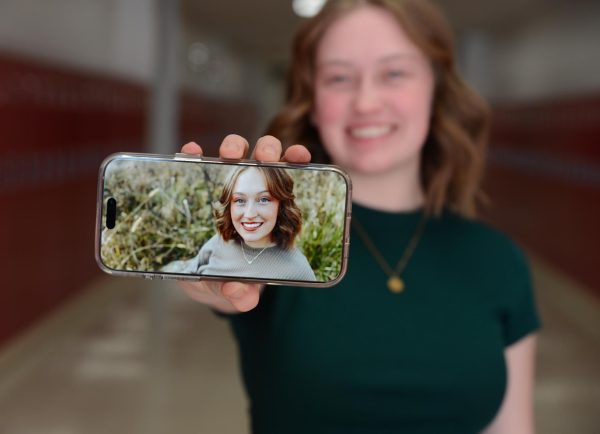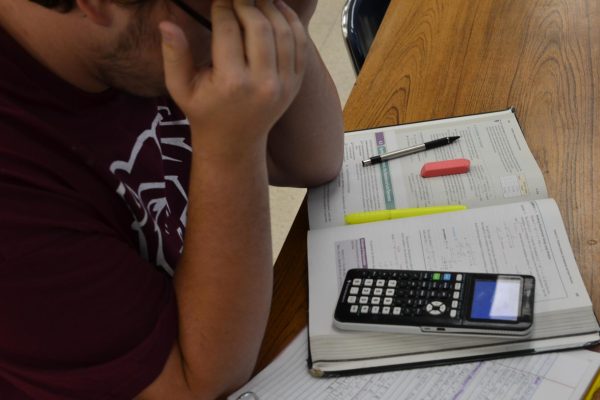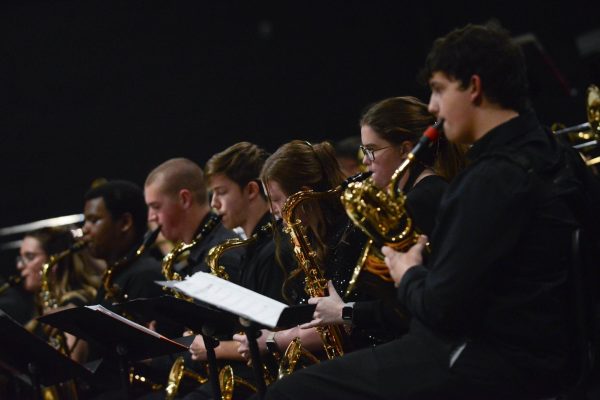Surviving the Holocaust: Local woman shares her story
There are a great number of people in the world and everyone experiences different things and is shaped differently because of these experiences. World War II is often portrayed through the horror people experienced and today’s society hears of the crimes committed by humans to other humans. There is also the portrayal that much of the United States prefers over analysis, that the United States, with help from other countries, saved Europe from the Nazi regime and Hitler’s plans. There are people who lived in this era and look back not at the horror, but at the life. They may have experienced terrible things, but that was the life they knew. They cried, they loved, they laughed. Helga Cohen is one of these people.
Cohen is a German immigrant and a retired special education teacher who taught along the east coast and in St. James and Rolla. Cohen was one of five children that were born within eight years.
“All I remember is [how much] my mother worked during the Hitler time. When the war broke out, my father was inducted into the army so she had to raise us children by herself. There was a program though Hitler that younger girls, fourteen, fifteen years of age, would have to help families with lots of kids. Therefore, my mother always had a girl helping. Hitler encouraged young mothers to have many children so that Germany would become bigger,” Cohen said.
Although during the wartime, those who took care of her helped her to enjoy her childhood.
“I had a very carefree time. I remember playing out in the yard and going to the local swimming pool, with my siblings, my mother never had time of course. My older sister was the one who always had to take care of us all. It was amazing, when she was maybe six, seven year old, she took us to the pool and we always came back alive,” Cohen said.
However, this happy carefree time period did not last.
“In 1944, I remember, it was a very snowy and bitter cold winter. I had heard about war, but i really did not understand it. I knew WWII had broken out in ‘39, so I knew we were at war, but not even a plane would come by. I never heard a plane go overhead and as far as I was concerned, the war took place somewhere else. But then, in the fall of ‘44, this was the time when things changed. The first refugees were coming through our town from farther east, escaping from the Russian army. We brought them food and warm clothing. This was the first time when I saw what war was all about. Just seeing these exhausted people was an experience and from them I heard that some of them had lost their small children to the frost. I did not see it, but I just heard from them,” Cohen said.
This was Cohen’s first introduction to war. She was about eight years old. In January of 1945, the Red Army began to gradually take over Poland.
“This is when my mother decided, she was in charge, we need to leave: ‘We cannot stay here,’” Cohen said.
The family left on a train that consisted of cattle cars that had been previously used to transport Jews to Auschwitz, a concentration camp in southern Poland.
“You could not move from one compartment to the other. We were sitting on the floor because there were no seats or anything. There wasn’t much room to move around.
Cohen remembers that the train stopped in Cottbus one time. Cottbus is near the current border between Germany and Poland.
“One of my siblings wasn’t feeling well so my mother told my older sister, Erica to get off the train and out [go] out to the station. My mother had heard that hot milk was available there and it might help my sibling. Erica got off the train but after only a few minutes, the train started moving again,” Cohen said.
Her older sister did not make it back onto the car the family was on at that stop.
“I will never forget… It seemed endless. My mother didn’t say a word. I remember, she was just staring and then the door was opened… and the Red Cross came in and my mother pushed me and told me to go up to the door and ask them to look for, I was eight, so [look for] an eleven year old kid,” Cohen said.
Cohen did ask and the Red Cross returned with Erica after the train stopped the next time.
“She had jumped on the end of the train and, there were several trains standing there and how she remembered which train she had gotten off [of] in all the chaos, I don’t know how she did it [but] we had her back,” Cohen said.
This event led to the discovery of more of Cohen’s family in a section of the train which had been added on at the time of the departure without their knowledge.
“They were all in the back sitting like kings. But anyway, that’s how we learned they were there. The train stopped sometimes for two hours in the middle of nowhere and we were completely encircled by the enemy. I don’t know how the Germans got the trains out but they were pretty good.”
The train eventually separated. The refugees were given the choice of going into Czechoslovakia or Dresden, Germany. Due to her mother’s decision, Cohen and her family ended up in the Sudetenland, a German speaking region on the border of Czechoslovakia which was controlled by Hitler. The family ended up in West Germany in the zone controlled by the United States.
“No one wanted to live under the Russians, they all wanted to be in the American zone and because of my mother’s decision of going to Czechoslovakia, and we wound up there,” Cohen said.
Near the end of World War II, the small town that the family were staying in was bombed. They lived in small wooden huts that had been built for refugees, according to Cohen. They watched the planes fly by above them because the wooden houses didn’t seem any more safe than under the sky. Cohen returned to the school that she had attended before the bombings.
“It was completely demolished and there was another girl, also walking around and I recognized her as one of my classmates and I went up there to talk to her and she just stared at me, never said a word. She was Czech. You see, they all spoke both languages and then she just pretended that she didn’t know any German and we were the enemy and she wouldn’t talk to us anymore. It took me a while to understand why she wouldn’t talk to me,” Cohen said.
Cohen’s father rejoined the family, in Czechoslovakia, shortly before the war ended. He had worked with his company and rejoined their family after running across a bridge, over the Rhine, set to explode to stop Americans from invading. The Russians were coming from the other direction, moving further across Germany.
“They were told they couldn’t do cross the bridge anymore, there were already mines so that the bridge would blow up and that the Americans couldn’t advance. My father ran [across] at that point. He ran over the bridge and he said that he wasn’t far away from the bridge when the bridge exploded so he made it. He came to Czechoslovakia the day before the war was over,” Cohen said.
The American occupation of Czechoslovakia lasted one month.
“Leaving, they would use trains to move coal and stop on the way to pick up people. I remember there was luggage on top of the coal and the people were sitting up on top and I sat with my legs out, dangling over the edge of the train, because there wasn’t enough room. There was a soldier there who had a cast on, and every time I sat too much on him he would cry out in pain and I didn’t know where to move. I would have fallen off. That’s how we got out of Czechoslovakia,” Cohen said.
Her family had left Czechoslovakia at a good time. When the United States returned the land they had occupied for a month, the Czech expelled all Germans that had been in their country.
“My father wanted to go to Darmstadt because he knew some people, he had hoped that we would be able to find a place… That town was leveled during the war. We stayed with people that he knew but it was only temporary,” Cohen said
The trains controlled the path that the family took. They wound up in a small town named Taennisberg. A town located in Bavaria near the Czech border.
“We were twelve in one room on the floor with a blanket and that’s where we slept. Eventually we were given a place to stay. But… it was three kilometers away, another little village. We had to walk to school, three kilometers,” Cohen said. “We didn’t have any money, so how do we get food? My father, went begging for food. He would go farm to farm and he would come back at night with a pack full of eggs and bread and bacon and butter and so on. He was a very outgoing person. People just liked him and I think that had lots to do with all that food. We shared with the rest of the family, it wasn’t just for us, so it was amazing that he did.
Cohen rode the train for one and a half hours daily to attend a high school in a larger city. The city they were living in at the time, didn’t have one. The family was not rich but it had all that it needed to survive. Cohen attributes this to her father’s luck and hard work.
“He was always lucky, we never had a lot, but we had enough that we could eat. I know we didn’t have any shoes, so we went barefoot, but when wintertime came, we had shoes. I used to go barefoot a lot, play in the woods barefoot…. The worst was always kept from me and my father always took opportunities,” Cohen said.
The family moved to Cologne in 1954. Cohen’s father received a job and the choice of where to work. He chose Cologne, the sister city to Bresslau, which he was attached to.
“My father, he always made the best of everything and he was never unhappy but he missed whatever his people he knew, they were the Schlezians, people from Silesia. Being together with them. That’s why I think he took Cologne over any other city and so we lived then in Cologne. I still have two siblings that lived in that area,” Cohen said.
After the war, Cohen’s mother became involved in The Peace Movement. According to Cohen, it was a movement meant to bring people together to study and work. Through this movement, Cohen met a friend that encouraged her to go to Buffalo, New York.
“I thought, I come over for one or two years, you know, adventure. If someone had asked me to come over to Australia I probably would’ve said yes too,” Cohen said.
Cohen worked as a nanny but eventually decided to return back to school. She sent her German transcripts to an International Institute in Buffalo which translated them and told her what courses she needed to receive an equivalent to a high school diploma.
“At first, they didn’t want me to go, because, they were actually very nice people, but they were also very socially active. They would go out and I would babysit. I really didn’t have much time away from the house. It was Mrs. Kulick’s mother who herself had been an immigrant from Russia who spoke on my behalf and told her daughter: ‘I think that it’s a very good idea that she wants to go to high school. Let her go,’” Cohen said.
Cohen worked hard for her diploma and babysat when home. She decided to apply at The Manufacturers and Trader’s Trust Company, a bank in Buffalo. She began working there behind the tellers and running mail throughout the building.
“That’s how I got to know Avarele Harriman, who later on became Governor of New York.He was very well known and he took an interest in me. He would ask me questions and when he found out that I was going to high school and was trying to get my diploma, he would take time out, half an hour, forty-five minutes and he would explain, sometimes the history which I didn’t understand, sometimes I didn’t understand the English well enough and he would sit there and explain it. He was president of the bank and would take time and explain to one of the lowest of the low. That was quite an experience, meeting him. I always felt that I had the luck that I always met people who helped me. Somehow, they were always there,” Cohen said.
After receiving her high school diploma, Cohen applied at Buffalo University. She was accepted and received a scholarship. She rented rooms from the faculty and worked multiple jobs.
“I worked at the University, at the Bursar’s Office. Which was in charge of registration. I was in charge of the parking violations. They would bring me all this stuff and I had to find out from license plate numbers who the students were and I had to go after them to get them to pay their fines. I would also have to tell them that if they didn’t pay up they wouldn’t get their transcripts,” Cohen said.
Cohen didn’t work all the time though. She took a trip to a Quaker conference and to Europe along with a boat of hundreds of students. She paid for these trips herself from the money that she had saved. She also had help from a lot of people.
“I think I did quite well, not having any money, but I was able to do some things. I met people who helped me. As you can tell, my idea of being here in the States, my idea was to learn English and do something with English over there. Well, everything changed when I realized the opportunities here,” Cohen said.
During her time studying in Buffalo, she met other immigrant girls.
“They couldn’t always understand when I said I was working or I said I have homework to do. They couldn’t understand that. It was like we came from two different worlds. They were just happy to work for the family. They had boyfriends, eventually married, and that was all they wanted. I always wanted more, I guess. I’m glad I wanted more,” Cohen said.
Cohen taught special education in Niagara Falls and then worked in a treatment center outside of Philadelphia. After this, she decided to go to Columbia University for her Master’s degree. She went to class late in the day because she taught throughout the day. This is how she met her husband.
“I heard music in the gym [one day], so I walked over there and they had folk dancing there. This is where I met Jerry. He was a student at Columbia University. He was getting a PhD and I was [teaching] in Special Education. Four years later, we married, and we settled down here and we are still here.
I like it here,” Cohen said.
Cohen taught in St. James and Rolla until she retired in 1998. She grew up in a world very different from what most experience today, but she lives in a place which is still influenced by some of those experiences.







